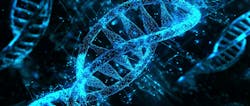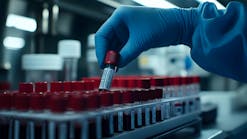Researchers have demonstrated that a refined gene therapy approach safely restores the immune systems of some children with severe combined immunodeficiency (SCID). The rare condition blocks the normal development of a newborn’s immune system, leaving the child susceptible to every passing microbe. The findings from facilities including the National Institutes of Health, the University of California, Los Angeles (UCLA), and the Children’s Hospital Los Angeles are reported in a recent online issue of the journal Blood. In the 11-year study, the researchers tested a combination of techniques for gene therapy, arriving at one that produced normal levels of immune function for three patients.
In one type of SCID, a gene that produces the adenosine deaminase (ADA) enzyme becomes mutated and fails to produce the normal enzyme. Without ADA, a chemically altered form of adenosine, one of DNA’s building blocks, accumulates in rapidly dividing bone marrow cells, killing them and destroying the immune system in the process.
Researchers have sought to cure the disease by inserting a healthy copy of the ADA gene into continuously dividing bone marrow cells called stem cells. Getting a healthy, working ADA gene into bone marrow stem cells has proved difficult. Now, three children who received an optimized form of gene therapy in this U.S. clinical trial have experienced improved health for up to five years. Researchers used two slightly different DNA insertion vehicles, called retroviral vectors, to deliver the healthy ADA gene into the bone marrow cells of the patients. The research is ongoing. Learn more in a NIH/National Genome Project press release.





